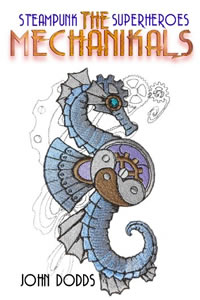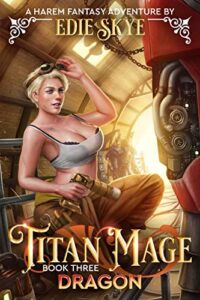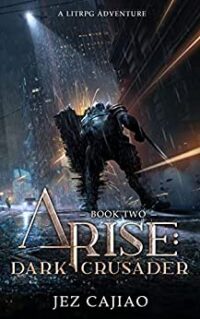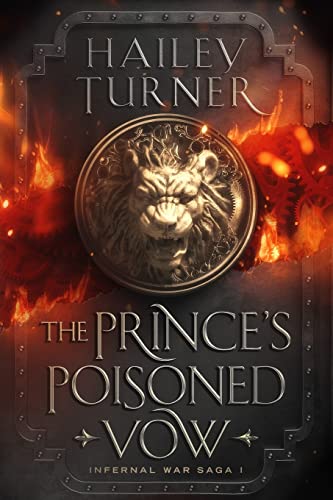As someone who has wanted to write science fiction since the age of 10 or 11, when I first became a rabid reader of the stuff, it came as a surprise that my first published novels were crime ones. Bone Machines, and its follow-up, Kali’s Kiss, were released as audiobook specials by Blackstone Audio, Inc. in 2011 (the third Kendrick Chronicles novel, Babylon Slide, will be out on audio later in 2014). But it seems I couldn’t escape my beloved SF entirely – the narrator of my first two books is Robin Sachs, a British actor best known for his roles in Buffy The Vampire Slayer, Babylon 5, Lost World: Jurassic Park, Torchwood and more. There’s an irony there, somewhere.
However, after completing my second Detective Tom Kendrick novel, I had written a steampunk story called Cubes. It was accepted by Steampunk Tales Magazine. Which folded at the fourth issue in which my story was due to appear. That was the second time this has happened to me – a story I wrote in my 20s had been provisionally accepted by New Worlds Magazine, subject to some edits. I did the edits and then that magazine promptly ceased publication. Was I down and frustrated? You bet I was. Still, I never gave up writing, and had stories appear in genre publications such as Britain’s The Horror Express Magazine, some e-zines and, ironically, Fantastic Metropolis, a speculative fiction website which had New Worlds luminary and brilliant fantasy author, Michael Moorcock on its board.
Coincidence upon coincidence. You couldn’t make this stuff up. Mind you, the gap between my New Worlds almost-acceptance and getting a story, Dr. North’s Wound in the first Fantastic Metropolis book release, Breaking Windows: A Fantastic Metropolis Sampler (St. Martin’s Press) alongside work by such stars as China Miéville and Jeff VanderMeer, no less, was close to thirty years.
Which brings me to The Mechanikals.
A few years back I’d begun writing a young adult fantasy, which I never completed. And having written some horror and fantasy and even magical realism in the meantime, I decided to work on an idea that had been tickling my back brain for several months: a steampunk novel for young adults. But with superheroes. While I had been aware of a steampunk version of Batman, I didn’t know for certain if anyone had tackled superheroes in a steampunk universe, so I decided to go for it.
Following the adventures of young orphan and factory apprentice, Edwin Bryce, on the eve of the First World War, I ended up with a melange of steampunk, science fantasy, superheroes and alternate history. Don’t blame me: I like to mix things up. Even my crime novels have aspects of the ghost story and the supernatural in them, though not presented as actual otherworldly elements.
When it came down to the finishing post, I realised I could probably write a trilogy at least about The Mechanikals, though each volume is intended to be a standalone. The next one is not yet begun – instead I’ve written the first in a projected series of future thrillers called Bad Seeds (think the TV shows Person of Interest crossed with The Avengers); I’m at the closing stages of a noir crime novel; and I have just released two novelettes for Kindle, a paranormal romantic comedy, Dead Boyfriends, and a medieval Japanese fantasy, Oni. Meanwhile, I’ve got at least three new novels waiting to emerge into the light.
As for my biog, I am a Scotsman, now living in Bulgaria. I trained as a journalist, worked in public relations as an arts publicist – a highlight of that time was having coffee with a young Whoopi Goldberg. I also trained as a person-centred counsellor and, though I am no longer practising I edit and sometimes contribute to the journal, Counselling in Scotland. I also enjoy playing guitar and singing.
Find John on the Web: Goodreads | Website
BLURB
 |
| Kindle |
It’s the eve of the first World War, in an alternative England where steam power rules land, sea and sky. But even as the spectre of war looms the country has a more immediate battle to fight on its own shores. Vampire mermen, armies of the undead, burning policemen, invisible airships, undersea weapons and supernatural threats…and an orphaned factory apprentice, Edwin Bryce, thrown into a conflict on an unimaginable scale. Only one force can stand against the terror and devastation facing their countrymen, a group of heroes called The Mechanikals. And when young Edwin acquires his special powers he is enlisted into their ranks, to face the terrifying enemy.
Review extract:
“The characters are meticulously developed to suit the plot and do not seem over dramatized (as can often happen in the Steampunk realm). In a story centred on superheroes, the plausibility of fantastic ideas is comfortable and seems to fit well. Placed in the environment of such a harsh world using clear-cut imagery, the reader is allowed to enjoy the story without the distractions of credibility common in this kind of work…The Mechanikals by John Dodds is the first instalment in a new YA Steampunk series. It is a strong beginning to an absorbing and entertaining world of wonder.” – Amazing Stories Magazine
EXCERPT
By the time he reached the factory gates he was out of breath. The ornately filigreed arch above the gates bore a metal plaque embossed with the words: Allied Aquatics Ltd. The monumental two storey building beyond housed a smelter, panel beating machines, and a variety of construction units handling everything from parts assembly to plate finishing. Edwin himself was a lowly rivet hole puncher and general gofer; the hiss of steam and the relentless percussion of rivet guns made his ears rings constantly.
This morning the gates were ajar. the thick chain and lock hung loose. While the smelters worked through the night, the gates were normally kept locked until the morning shift. In recent months anti-war protesters had been creating trouble at the factory for turning many of its processes to military uses. What no one seemed to understand, though, was that Naval commissions represented a huge boost for the city, bringing jobs to many more people and greatly aiding the ailing marine industry.
It came as no surprise, then, when he saw that the lock itself was broken. Its heavy hasp was bent and twisted out of shape by what must have been enormous force.
A vertical band of hot orange light showed through narrow opening of the gigantic sliding bay doors. As Edwin drew closer he saw through the gap the smelter bucket pouring molten iron into moulds on the conveyor belt. Two men tipped the bucket at precisely the right moment to fill each mould in turn without spilling any of its volcanic contents. Their thick protective suits and face shields made them seem twice the size of normal men. Scalding light and sparks reflected from their visors, giving them an almost demonic appearance.
Edwin squeezed through the opening. The man on the opposite side of the conveyor turned his visored head toward him. He made a gloved thumbs up to his colleague, who shoved forward a lever to stop the belt. The smelter bucket swung upright with a clang.
Clambering over the conveyor between two mould trays, the man approached Edwin, pulled off his gloves, thrust them into his belt and flipped up his visor. The face revealed was square jawed, with a fine, slender nose and plump lips; the redness of nose and cheek would have suggested to anyone who didn’t know his profession that he was a boozer. Edwin knew, though, that not a drop of hard liquor passed Alun Strang’s lips, only a few pints of beer at the end of the working week.
“What’s this, young un? The Blimp’s bladder burst again?”
Edwin didn’t laugh on this time. Alun’s banter was always in good part, and, while he would never admit it he had unofficially taken Edwin under his wing. Alun’s co-worker, a curmudgeonly older man nicknamed Snipes, shook his head at the interruption, but took advantage of it to nip outside for a smoke.
“Someone’s broke in, Alun. Front gate lock’s all busted up.”
Alun looked startled. Throwing his visor to the ground, he ran to the small metal door near the bay doors, through which Snipes had gone. This door was for workers only, and could only be opened from the inside without the key.
“Snipes!” he called, running to the factory gates.
The older man pushed himself off the wall he’d been leaning against, crushed out his cigarette beneath his boot, and sprinted after him.
Edwin stayed where he was, at the door. He saw Strang examine the lock with a shake of his head.
He said something to Snipes that Edwin couldn’t make out. While the two men were in discussion a scraping noise caught Edwin’s attention. It had come from inside the factory. He waited. Scritch, scritch, scritch!
Edwin whipped around. The sound was louder, just on the other side of the door by which he stood.
He was about to call over to Strang when the door slammed open, banging against his shoulders and throwing him to the ground. A sharp pain in his hip followed, just as though someone had kicked him. Then the sound of scampering feet. Edwin looked up just in time to see a blurry shape round the canal end of the factory.
More outraged than afraid, Edwin unthinkingly launched himself to his feet and set off in pursuit. Edwin was small and light, and fit from his daily labours, consequently he was fast and not even out of breath when he reached the loading dock.
The gates to the loading dock, too, were off their chain, and thrown wide to allow access to the canal walkway and the loading platform below it. Edwin went to the edge of the walkway and craned his neck to peek over it. He studied the loading platform below. It was suspended close to the surface of the shipping canal’s the oily, viscous waters. Low enough to make it easier for goods to be handled to and from the barges that plied their way between the seas to the east and the west. No sign of anyone. Here, the fog hung more densely than in the city streets, intermingled as it was with the stinking gasses produced by effluent, different species of algae and scum, and other detritus which Edwin didn’t care to think about. There were no barges docked today. On the opposite bank the walls of a now disused dirigible factory loomed up in the murk like some medieval fortress.
He peered more closely through the gaps between the planks. Until he saw movement. The low morning light reflected from the ripples in the freshly-disturbed water.
He knelt down and put his face closer to a gap, peering hard to see what might be the cause.
At first all he could make out was the oily ripples spreading and slowing. Could it be that whatever had caused them had already sunk to the bottom? In any case, the surface was black, too dense to make out anything below it. But in the next few seconds, the surface began to quiver. The ripples began to multiply and spread again, only this time much faster. Almost as though….
When the head bobbed up through the epicentre of the ripples and the dead eyes gazed into his own, Edwin fell back in horror. He must have screamed because, just as he was about to run, he felt himself pulled upright by his forearm.
“All right there, young ‘un,” said Alun Strang, concern clearly visible in his features. “Nothing to worry about.”
Edwin shivered. Pointed. “Down there…”
“What is, lad?” Snipes said, stepping forward and squatting over the exact spot from which Strang had pulled him. After a minute or so of scanning the area, he added, “Well, nothing there now, that’s for sure.”
It wasn’t until much later, after Edwin had put in the whole of that day in the usual gruelling day’s work, which the factory owners had insisted on, break in or no break in, that Edwin recalled in more detail what he’d seen.
The face that had emerged from the water had had the most peculiar eyes he had ever seen. The eyes had been flat, expressionless, like those of a fish. And, while the head had been human shaped and sized, the skin of that face hadn’t really been skin at all. Instead it had been a mask of blue-silver scales.










